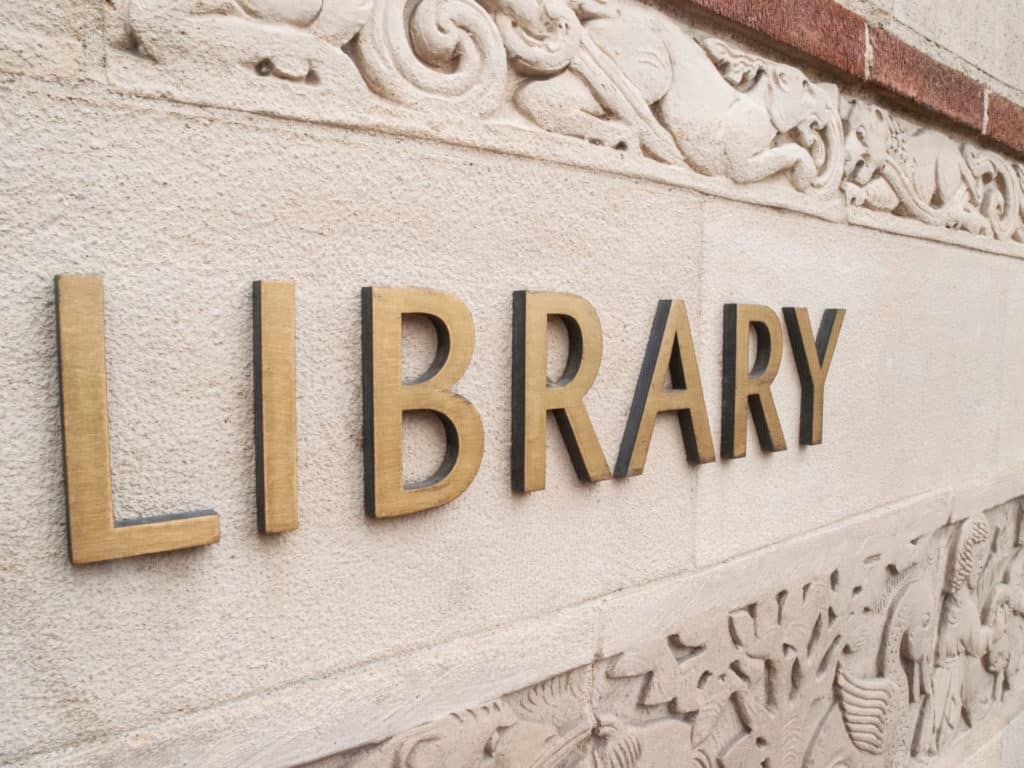
Volunteer Julie Ann Winkelstein Brings VoteRiders to Libraries
The nation’s libraries often serve their communities by providing basic voter information to help people get registered. Now, volunteer and activist librarian Julie Ann Winkelstein is helping librarians offer citizens with the resources they need to make sure their votes count.
Inspired by viewing “Rigged: The Voter Suppression Playbook,” Winkelstein helped arrange and promote a panel presentation entitled “Democracy in the Time of COVID-19” at a national American Library Association Social Responsibilities Round Table (SRRT) online gathering called “Afternoon of Social Justice.” Guest panelists discussed voting and how libraries could help citizens to exercise this most basic of democratic rights. In addition, she helped bring together speakers from VoteRiders, abcVOTE, and Democracy Works for a panel presentation for libraries, called “Libraries and Voter Engagement in 2020 and Beyond.”
In collaboration with VoteRiders, Winkelstein led efforts to:
- Develop a list of questions for librarians to ask potential voters that could link them to the resources they need, from where to vote to how to vote by mail to the ID that is required in their state. This proactive step went beyond just offering voter registration information to making sure voters have the information and connections they needed to actually cast their ballots.
- Provide information on VoteRiders’ tools and services.
- Encourage libraries to have ballot drop boxes available to the community. Even libraries that were closed due to the pandemic could have a drop box and instructions outside the building for the convenience of nearby residents. Some libraries were already doing this.
- Host speakers to talk about overcoming barriers to voting, especially those that affected BIPOC (Black, Indigenous, and People of Color) and those with limited financial means.
- Serving as a permanent address for people who did not have such an address and could not otherwise receive voting materials or register to vote.
Winkelstein’s Ph.D. research in the role of libraries in addressing homelessness, in particular LGBTQ+ youth and young adults, educated her in how difficult it is to live, and especially to vote, when a person’s living conditions are unstable. Libraries are a community resource that can be a conduit to a wide array of services, from having a permanent address, to having access to the Internet and electricity to being able to register and to vote. Shelters and libraries can collaborate to provide both information and services to people who are without safe, predictable and reliable housing situations.
A veteran librarian with experience in libraries in communities, prisons, and jails, Winkelstein currently lives in the San Francisco Bay area. She teaches graduate students in library science and is the author of “Libraries and Homelessness: An Action Guide,” forthcoming in July 2021.
“As libraries, we are just beginning to explore the potential for libraries to help their communities exercise their democratic right to vote,” says Winkelstein. She plans to continue her collaboration with VoteRiders, hoping to help libraries across the country as they focus on voting and other roles in social action.
Guest Post by Joy Scott
